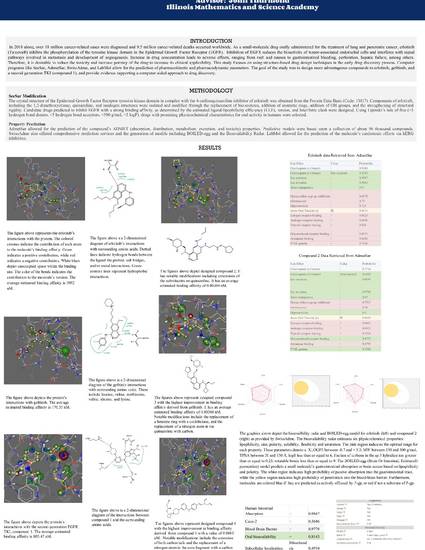
Presented at the American Chemical Society (ACS) Meeting, Benedictine University
In 2018 alone, over 18 million cancer-related cases were diagnosed and 9.5 million cancer-related deaths occurred worldwide. As a small-molecule drug orally administered for the treatment of lung and pancreatic cancer, erlotinib (Tarceva®) inhibits the phosphorylation of the tyrosine kinase domain in the Epidermal Growth Factor Receptor (EGFR). Inhibition of EGFR reduces the bioactivity of tumor-associated endothelial cells and interferes with signal pathways involved in metastasis and development of angiogenesis. Increase in drug concentration leads to adverse effects, ranging from rash and nausea to gastrointestinal bleeding, perforation, hepatic failure, among others. Therefore, it is desirable to reduce the toxicity and increase potency of the drug to increase its clinical applicability. This study focuses on using structure-based drug design techniques in the early drug discovery process. Computer programs like SeeSar, AdmetSar, SwissAdme, and LabMol allow for the prediction of pharmacokinetic and pharmacodynamic parameters. The goal of the study was to design more advantageous compounds to erlotinib, gefitinib, and a second-generation TKI (compound 1), and provide evidence supporting a computer-aided approach to drug discovery.
Available at: http://works.bepress.com/jodie-meng/9/
